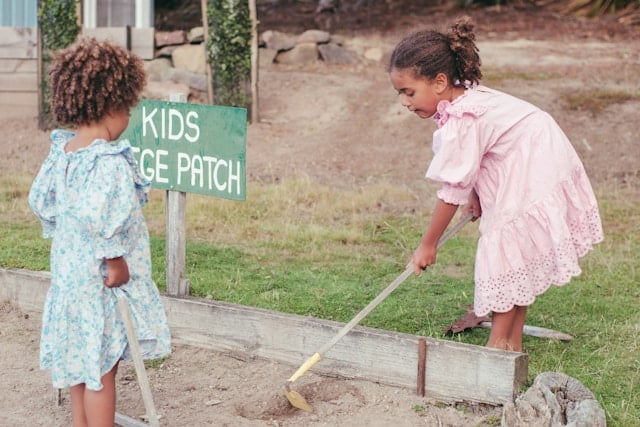How to Organize a Zero-Waste Event in the UK?

In the heart of the matter, sustainability is not a trend but a crucial shift in societal awareness. In a world where waste management has become a global concern, eco-friendly practices are becoming increasingly vital. As an event planner, you have a significant role to play in endorsing sustainability. With countless events happening around the UK every day, imagine the positive impact you can create by turning these into zero-waste events. It’s a win-win situation for everyone involved: for you, for your guests, and most importantly, for the environment. Today, we are going to teach you how to organize your very own zero-waste event.
Reducing Waste Before the Event
Zero-waste events begin at the planning stage. This is where you make crucial decisions that determine how much waste your event will generate.
A découvrir également : What Are the Latest Developments in Non-Invasive Blood Glucose Monitoring?
Prioritise Digital Communication
Trim down on paper use by prioritising digital communication. Instead of sending physical invites or tickets, go for e-invitations or digital passes. Using event management platforms will also be a great move. These platforms allow you to handle registrations, send updates, and even receive payments online, eliminating the need for paper tickets and receipts.
Opt for Reusable Decorations
Avoid single-use decorations or items made from non-recyclable materials. Consider hiring decorations or using those made from recycled materials. You can also get creative and use natural elements like flowers, leaves, or even fruit as part of your decor.
En parallèle : How to Ensure Ethical AI Use in UK’s Job Recruitment Processes?
Zero-Waste Catering
A significant amount of waste from events comes from food and drink. There are several strategies you can employ to make your catering more sustainable.
Choose a Sustainable Caterer
Find a caterer that prioritises sustainability in their practices. This could involve using locally sourced food, or food that has been grown or raised in a sustainable manner. It could also involve strategies to reduce waste, such as using bulk containers instead of individual packaging.
Use Reusable Dinnerware
Using reusable dinnerware is another effective way to reduce waste at your event. Instead of disposable plates, cups, and cutlery, opt for actual crockery and glassware. If this isn’t feasible due to the size or nature of your event, consider compostable options.
Encouraging Recycling at the Event
One of the most critical parts of a zero-waste event is what happens on the day itself. Encouraging attendees to participate in your zero-waste efforts is crucial.
Provide Recycling Stations
One of the most effective ways to encourage recycling is by providing recycling stations at your event. These should be clearly marked and easy to use, with separate bins for different types of waste. Make sure these stations are well distributed throughout the event space, and that there are enough of them to handle the volume of waste your event will generate.
Educate Your Attendees
Your guests are likely just as concerned about the environment as you are. Use this to your advantage by educating them about your zero-waste initiatives. This could involve signs explaining why you’ve chosen to go zero-waste, how they can participate, or even a short presentation during the event itself. The key is to make it clear that their cooperation is essential for the event’s success.
Post-Event Waste Management
The end of your event doesn’t mean the end of your zero-waste efforts. There are still plenty of opportunities to reduce, recycle, and reuse.
Compost Organic Waste
Food scraps, used coffee grounds, and other organic waste shouldn’t end up in the landfill. Instead, consider composting them. This will not only help reduce waste but can also be a valuable resource for local farmers or gardeners.
Donate What You Can
If there are leftover food, decorations, or other items that can still be of use, consider donating them. Local charities, schools, or community groups may appreciate the help. Not only will this reduce the amount of waste your event generates, but it can also help foster a stronger sense of community.
Following these steps will put you on the path towards organizing successful zero-waste events. While it may require some extra effort and planning, the potential benefits for the environment and for your reputation as a responsible event organizer make it well worth it. Remember, it’s not just about the event – it’s about the legacy it leaves behind.
Responsibly Selecting Event Venues
Choosing an appropriate venue is a vital step towards hosting a zero-waste event. The venue’s commitment to waste reduction and management can greatly influence the environmental impact of your event.
Opt for Eco-Conscious Venues
When scouting for venues, look for establishments that demonstrate a commitment towards sustainability. These are locations that have waste management systems in place, such as recycling or composting facilities. Some venues may even have partnerships with local farms for food waste disposal or make use of renewable energy sources, further reducing their carbon footprint.
Encourage Public Transport or Carpooling
Choose a venue that is easily accessible by public transportation to minimize carbon emissions from private vehicles. In the event that attendees must drive to the location, encourage carpooling to reduce the number of vehicles on the road. This not only fosters a sense of community among attendees but also decreases the overall environmental impact of your event.
Minimizing Single-Packaging Products
The use of single-packaging items can significantly add to the waste generated by your event. Prioritizing bulk purchases and avoiding individually wrapped items can drastically reduce waste.
Go Plastic-Free
Commit to a plastic-free event. This means avoiding single-use plastics, such as water bottles, straws, and snack wrappers. Instead, provide hydration stations where attendees can fill up their own reusable bottles and offer snacks in bulk bins, allowing guests to serve themselves using reusable or compostable containers.
Choose Eco-Friendly Suppliers
When sourcing event supplies, choose to work with suppliers that value sustainability. This may include companies that offer plant-based or biodegradable alternatives to traditional plastic products.
Conclusion: The Impact of Zero-Waste Events
As we approach waste week, the importance of organising zero-waste events cannot be overstated. Event planning professions have the potential to make a significant impact in the fight against waste, setting a precedent in environmental responsibility. By adopting strategies for waste reduction, such as digital communication, eco-friendly catering, recycling, composting, and careful selection of event venues and suppliers, we can minimize the environmental impact of our events and contribute to broader climate change mitigation efforts.
We should not underestimate the power of these events in influencing attendees’ habits and perceptions towards waste. As event organisers, we hold the responsibility of not only hosting enjoyable events but also fostering a culture of sustainability among our attendees. In turn, this can lead to a ripple effect of positive behavioural changes, contributing to a larger societal shift towards zero waste.
Remember, it’s not just about reducing waste during your event. It’s about leaving a lasting legacy of sustainability and inspiring others to do the same. Embrace the challenge of organising a zero-waste event and make a difference in your community today.
